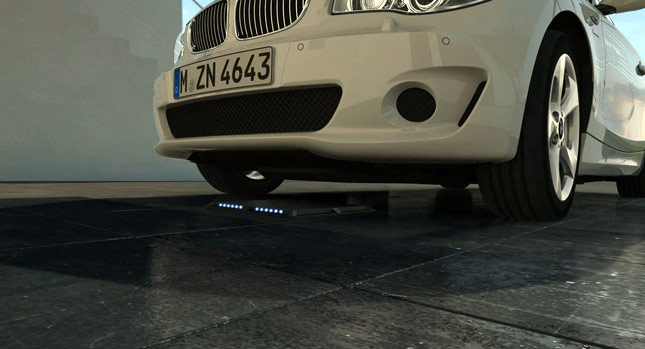Inductive charging of electric vehicles appears to be the way of the future, and BMW wants to be a part of it. The German luxury car manufacturer announced it is developing systems for inductive charging of high-voltage batteries of both BMW i cars and future plug-in models.
Obviously, the main advantage of inductive power supply over conventional charging stations is the cable-free connection between the supply point and the vehicle’s high-voltage battery. In order to make the technology cost-effective, BMW Group and Daimler AG have signed an agreement on the joint development and implementation of a standardized technology for inductive charging of electric cars and plug-in hybrid vehicles.
The system consists of two components: a secondary coil in the vehicle floor as well as a base plate with integral primary coil that is located underneath the car, for example on the garage floor.
The electrical energy is transmitted contact-free via an alternating magnetic field generated between the coils, without charging cables and at a charging rate of 3.6 kW. BMW says the method has an efficiency factor of over 90 percent. Another goal is to minimize the charging time. At the current charging rate of 3.6 kilowatts, the high-voltage batteries in many plug-in hybrid vehicles can be fully charged in under three hours.
Using a fully-working prototype of an inductive charging station it takes less than two hours to charge the BMW i8. For the future, there is also the possibility of increasing the charging rate to 7 kW, ensures that BMW i3’s battery could still be fully charged overnight when using the inductive system.
By Dan Mihalascu
PHOTO GALLERY












